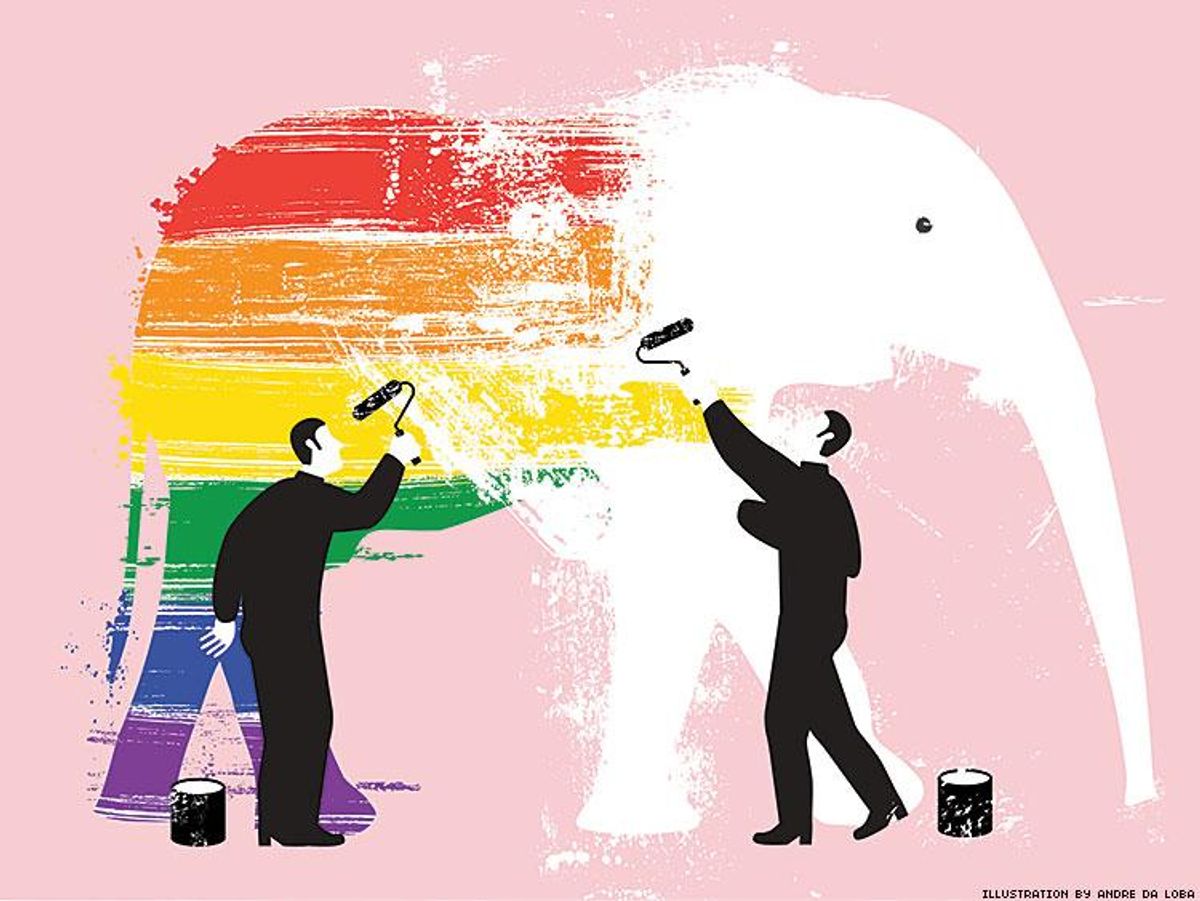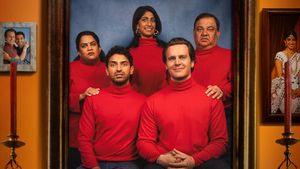Several months after President Barack Obama trounced Mitt Romney in the 2012 election, the Republican National Committee released a brutally honest autopsy of the party's defeat. The autopsy found that Republicans had scared away much-needed younger voters with their hard-line social conservatism.
"For the GOP to appeal to younger voters," the report declared, the party could not appear "totally intolerant of alternative points of view." For younger voters, "issues involving the treatment and the rights of gays" were "a gateway into whether the party is a place they want to be." In order to win national elections, the report concluded, the GOP needed "to campaign among...gay Americans and demonstrate we care about them, too."
The 2016 Republican presidential candidates have amply demonstrated that they care about gay Americans -- specifically, about LGBT Americans' rights, and how they can be nullified. Candidates are locked in a rhetorical arms race over same-sex marriage, emphatically asserting their opposition to the Supreme Court's ruling that gays cannot be denied their right to marry. Voters have been treated to an endless stream of polemics against "judicial tyranny" as candidates lambaste the "imperial court" for attempting to "repeal the laws of nature and nature's God on marriage."
Within this orthodoxy, there is little wiggle room for deviation. When Ted Cruz stated -- in a closed-door New York City fundraiser -- that overturning the decision wasn't a "top-three priority," then-candidate Mike Huckabee pounced. Cruz, Huckabee proclaimed, "says something very different at a big donor fund-raiser in Manhattan than at a church in Marshalltown." The most outwardly pro-gay candidate, Ohio governor John Kasich, opposes marriage equality but is considered relatively progressive because he attended a gay friend's wedding.
In other words, the 2016 Republican nomination battle has become the RNC's worst nightmare. Candidates are producing homophobic sound bites that will haunt the party for years, flaunting their antigay bona fides with evident relish. At the same time, a growing supermajority of young Republicans -- 61 percent as of 2014 -- support marriage equality. This (probably irreversible) demographic trend raises two fascinating questions: Will Republicans eventually be compelled to abandon their resistance to marriage equality in order to win national elections? And, if so, how can they soften their stance without alienating the fire-breathing base critical for electoral success?
Despite the apparent consensus among Republican presidential candidates that same-sex marriage is (at best) a state issue with no constitutional implications and (at worst) a biblical abomination, the party is profoundly divided on the issue. Republican millennials support marriage equality even as they continue the fight against Roe v. Wade, largely viewing the marriage issue as an apolitical question of common sense. The donor class, traditionally a moderating influence, tends to favor same-sex marriage rights as a settled question within the business community. (Corporations and Wall Street firms helped to fund the fight against DOMA, the federal same-sex-marriage ban, because that law made it difficult for them to compete for top gay executives and financiers.) Party elites don't much care about marriage equality, but they care about winning national elections, and they know a virulently antigay candidate will chase away votes in swing states.

From left: Mike Huckabee, Jeb Bush, Ted Cruz, and John Kasich at a GOP presidential debate in Des Moines, Iowa, on Jan. 28. AP Photo.
Then there's the Republican base. Largely composed of aging, angry churchgoers, the base is not inclined to undergo an Obama-like evolution on marriage equality. It is infuriated with the party elite (who failed to defund Planned Parenthood) and the donor class (which threw its money behind the much-despised Jeb Bush). The base does not like same-sex marriage, or the judges who ruled that it is a constitutional right. In fact, the base doesn't much like gay people -- but it is well enough informed to avoid admitting it in public. The base, in other words, is totally out of line with mainstream society when it comes to LGBT rights. It is also critical to the GOP's electoral ambitions.
This fissure between the base and every other segment of the party on marriage equality is, for now, mostly invisible -- a vexing setback for Democrats, who have long anticipated a defection of pro-gay Republicans to their party. But if you squint, the fault lines are already pretty clear. Jimmy LaSalvia, the former head of the gay Republican group GOProud who has since become an independent, sees the marriage question as part of a broader split within the party.
"There is a segment of the party that is out of touch culturally," LaSalvia told me. "It rejects anything that's part of our new modern multicultural reality: gay people, immigrants, Muslims, and so on. They want to live in a time when straight white Christians were the dominant culture."
LaSalvia acknowledges the existence of modernizing forces within the GOP, including donors and millennials. But, he says, neither group seems capable of moving the needle on marriage. Donors, he claims, aren't willing to condition funds on an embrace of same-sex marriage -- as demonstrated by billionaire Paul Singer's patronage of Marco Rubio's campaign. Singer, a hawkish neoconservative with a gay son, helped to bankroll the successful 2011 campaign to bring marriage equality to New York. But like many donors, LaSalvia said, Singer can "compartmentalize," simultaneously supporting pro-gay advocacy groups and antigay candidates whose foreign policy views align with his own.
Millennials, too, seem unwilling to use their growing leverage to push the party in a more enlightened direction. "The number one priority among Republicans," LaSalvia told me, "is to be a team player. So younger Republicans are going to compromise on marriage and support the nominee." At this point, millennials "just don't make up enough votes to justify a policy shift" that would "risk backlash from older voters."
Guy Benson, an openly gay rising star in the conservative media world, takes a more optimistic view.
"This is a generational issue," Benson told me. "Younger Republicans are in favor of gay marriage. At some point, there will be a changing of the guards, a shift in who actually controls the levers of power." Benson is heartened that, in this election cycle so far, the candidates have directed their ire at "judicial activism" rather than gay people themselves. He believes the conservative movement is already having "civil conversations about why many of us are in favor of gay marriage and why that's not necessarily out of line with traditional values." And by "breaking down assumptions that there's something strange about being a gay conservative," Benson believes he and his peers are helping to push their movement in the right direction.
Perhaps. Benson's enthusiasm is infectious, but it glosses over deep structural challenges that aren't going away. Millennials may not put up with their party's intolerance forever. If the GOP remains devoted to a stringently antigay platform through the next few election cycles, its younger members may well jump ship. That would leave the party without a pro-LGBT counterbalance, forcing candidates to double down on their antigay animosity. This feedback loop could ultimately neutralize the GOP at the national level--which is LaSalvia's forecast for his erstwhile party.
"If the intolerant wing takes over," LaSalvia asked, "how does the party recover? They're making a choice to live in the past. And modern political parties can't live in the past. They go extinct."



















































































